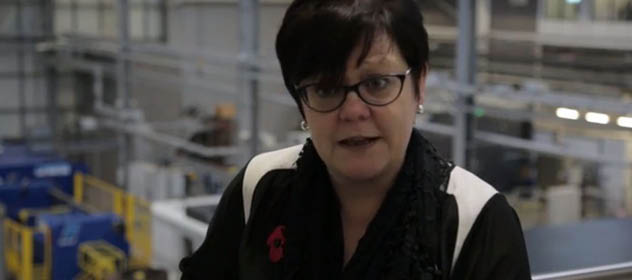
Having taken part in the pilot Teachers Industrial Partners Scheme (TIPS), sponsored by the IET and the IMECHE, I was invited to deliver my thoughts on the scheme at the ten year anniversary of the Science Learning Network at the House of Commons, on 3 February 2015. The event was hosted by Graham Stuart, Chair of the Commons Education Select Committee.
To give you some background to how important, I believe, schemes like the Teacher Industrial Partners’ Scheme are: I recently surveyed just over 100 STEM teachers regarding their views on education and the skills required for industry. 96% of those teachers felt that the New National Curriculum alone does not adequately covers the skills required for industry. 73% of these teachers do not feel adequately equipped to teach their students about current developments in industry. If you add those two statements together, we, as teachers clearly recognise that we need to provide some extracurricular STEM experiences to equip our students for work in the UK industry yet many of us admit to knowing very little about current industry practices.
The Teacher Industrial Partners’ Scheme is most certainly one of the solutions to this problem. I wasn’t entirely sure what to expect when I signed up to the pilot scheme but the ten days, that I spent at the Manufacturing Technology Centre in Coventry, quite simply blew all my preconceived ideas about the UK manufacturing industry right out of the water…. I’m ashamed, now, to admit that if a student had come to me, proposing that they have a career in manufacturing, and why would they as it’s not a career pathway we actively promote? I would have done my up most to dissuade them and would have probably tried to get them thinking about something that is far more exciting. After all why would anyone want to so spend their days on a dirty factory floor, doing the same mundane task over and over… I don’t know where I acquired that mental image from but it was there and in reality it’s probably there in the imagination of many other teachers too, if they’ve thought about it all. If industry partners need us, as teachers, to persuade our youngsters into their jobs, then they need to tackle these misconceptions that teachers hold. So what did I do on my industry placement?
I spent ten days with ten different departments from the engineers, the theoretical physicists to the caterers, to the marketing team to the premises officer to the engineering technicians – what an experience! To give you a flavour of the dichotomy between my preconceptions and the reality – I was told on one particular day that I would be spending the day with the welders…..I can’t even begin to tell you how totally underwhelmed I was by that prospect, it was going to be a VERY long day! Or so I thought. The reality was that I got to weld titanium with the world’s largest non-military laser, I witnessed the fireworks and explosions of rotary friction welding, I learnt about the application of additive manufacturing and 3d printing with metals in the biomedical, aeronautical and automotive industries...it was quite simply stunning. And something that I want my students to be aware of, and to experience.
Whilst participating in this scheme, I developed an after-school engineering course for our Year 8 and 9 pupils whereby they would eventually qualify as members of the institute of secondary engineers. With the help of local engineering companies and our new industry partner we provided them with a 12 week immersion into the potential of life as an engineer. I am incredibly impressed by their achievements and to be so well-informed before they consider their GCSE option choices is something that, as a school we are very proud of.
The scheme has allowed us to explore the possibility of developing long-term links with our industry partner and we are currently in talks with them about future opportunities. But this scheme wasn’t about seeing what an engineer does it was about seeing what careers anyone can do in the engineering and manufacturing sector – an area of rapid growth and development that needs to attract our youngsters. Bridging that gap between industry and students are the teachers, woefully ignorant of the excitement that such a career pathway could provide. I would suggest, therefore, that there should be a commitment, to ensure that every secondary school has the option to develop an industry partner.
Industry members need to accept the challenge… and perhaps more importantly, it requires us as teachers to be brave, to step outside the classroom… to acknowledge that we, as professionals, know when and where they learn best, and we need to get on and start inspiring our students, working with industry partners, taking up schemes like those provided by the National STEM Centre and giving our students the skills they need to survive in the UK work place. By necessity, a large percentage of our time is spent teaching students how to pass an exam, a larger percentage should be spent teaching them the skills they need to support the growth of the UK manufacturing industry –– If we are given the freedom to do so, (and there’s an issue for further debate) then participating in schemes such as the Teacher Industrial Partners scheme will surely give us the confidence to develop a sensible balance between those two very different lessons.

